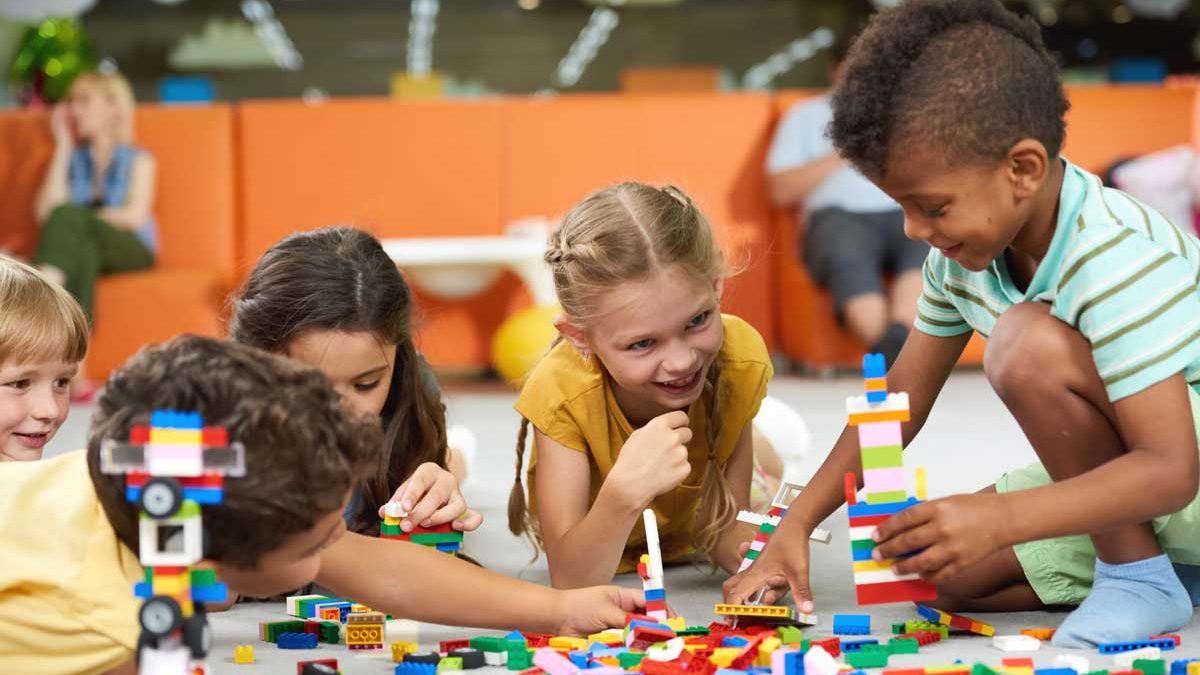
Research shows success in school involves both cognitive & social-emotional skills
By Erin Black
Did you know that children who are helpful and share in kindergarten are more likely to graduate college and have a full-time job by the age of 25? Children who have problems resolving conflicts, sharing, cooperating and listening as kindergarteners may be less likely to finish high school and college.
The American Journal of Public Health published a comprehensive study, a 20-year examination of 800 children from kindergarten through their mid-20s. The results of the study show that when young children are able to interact with their peers and control their emotions, it can have an enormous impact on how their adult lives take shape.
So what does this mean?
We are taught to believe that grades matter, test scores matter, and high IQ’S will get you ahead in life. While these accomplishments are something to be proud of and important, we should be focusing on much more when helping our children obtain the tools needed to carve out a successful future for themselves.
According to the study, kids should be spending more time on social-emotional skills in school. These skills include behavioral characteristics, emotion regulation, attention, self-regulation, and social skills. There are physical differences in our brains that make learning easier for some people than others. And this is something we cannot control or teach. But getting along with peers, displaying positive social-emotional skills and showing empathy are all things that can be taught and demonstrated, not just in school, but at home as well. Young children learn many social behaviors by observing others, we need to do our part by setting a good example.
3 resources to help build social-emotional skills in young children
We need to invest in teaching children how to relate to others and how to handle the things they’re feeling inside. Here are three resources to help build social-emotional skills in young children.
- 7 guiding rules for building empathy in children. Empathy is the ability to understand and share the feelings of another. Developing empathy in young children can prevent bullying behavior, build positive relationships with others, and even lead to better communities. This is a fantastic place to start. Here are 7 guiding rules for building empathy in your child.
- 4 tips for teaching compassion and kindness. Broaden your definition of achievement to include kindness and compassion towards others to help prevent your child from becoming a bully.
- 12 tips for teaching gratitude to children. An attitude of gratitude and the positive behaviors associated with it can build and strengthen relationships. People who practice gratitude are considered by others to be more helpful, trustworthy, and optimistic.

About The InvestiGator Club®:
The InvestiGator Club® family of early childhood resources delivers play-based learning programs for children from birth through transitional kindergarten. Standards-based curricula are approved and adopted in states throughout the U.S., including Texas, Florida, Arkansas, Georgia, Virginia, Maryland, Louisiana, Illinois, Minnesota, South Carolina, North Carolina, Rhode Island, Delaware, and more. The delightful InvestiGator Club® characters engage young children in developmentally appropriate experiences that bring joyful learning to classrooms, childcare providers, and families. For more information, email Robert-Leslie Publishing, The Early Childhood Company™, or call 773-935-8358.

About the Author:
Erin Black is a mom of three young children. She graduated from the University of Iowa with an English major and a Communications minor. She loves spending time with her family and is enjoying the daily discoveries, laughs, struggles and pride that come along with being a mom.

